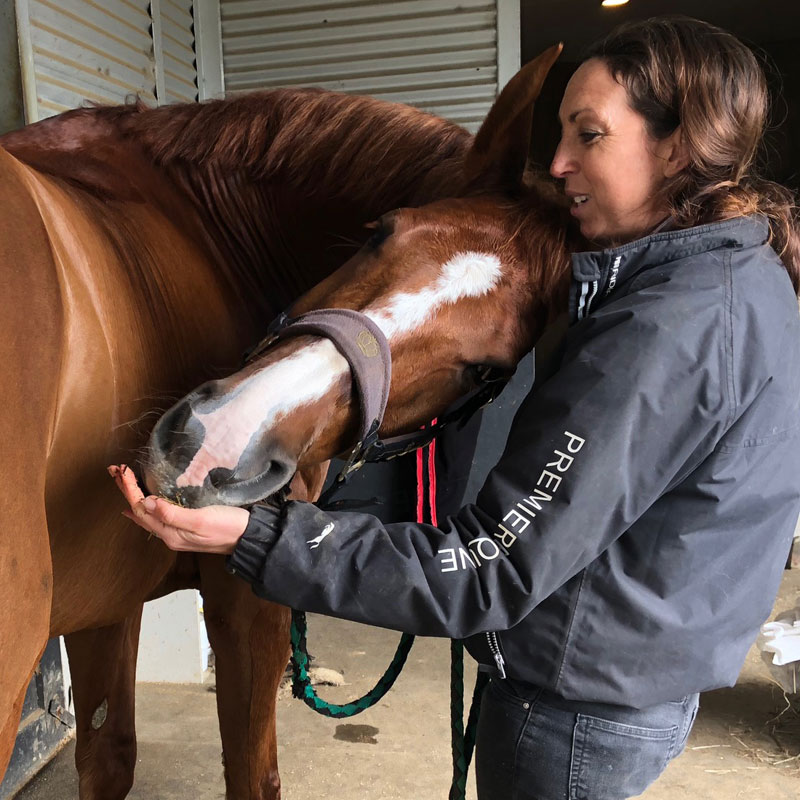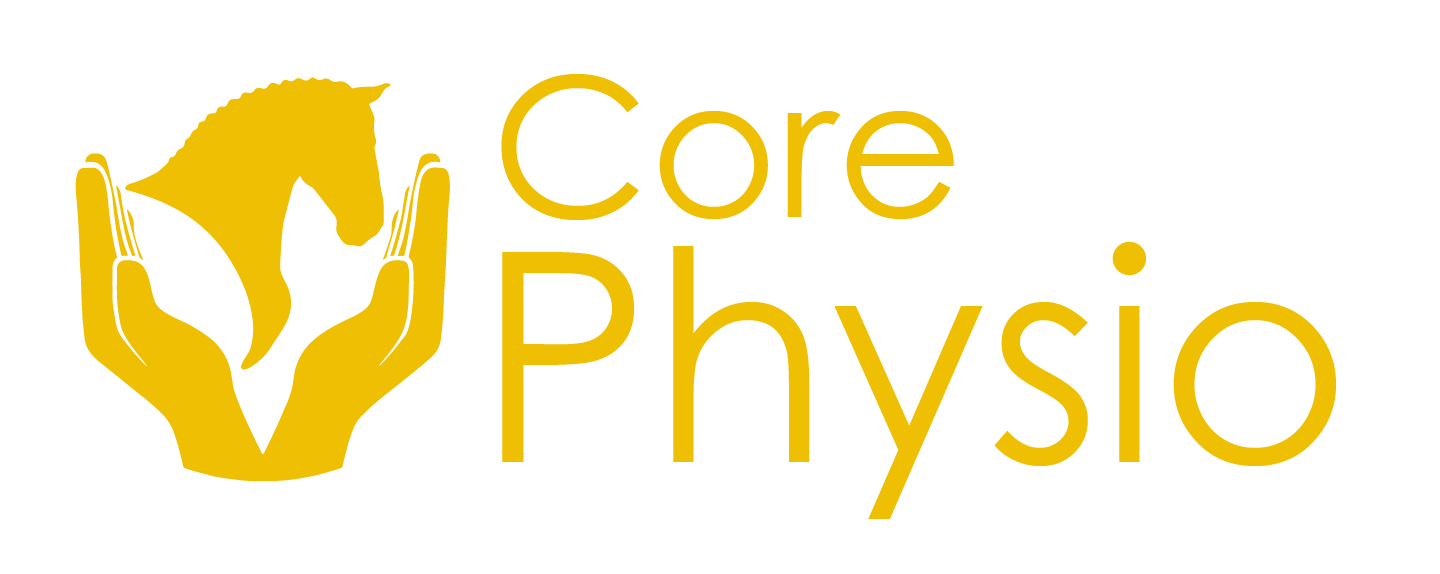Equestrian Performance is a Team Game
At Core Physio we support performance for all levels by accessing what both your bodies are capable of. The Core Physio Approach is to choose where you want to focus - Horse and Rider as a team, Rider only or Horse only.

On Horse Rider

Off Horse Rider
For Horses
On Horse Rider
Performance is a team game. By working with you and your horse we can optimise your progress and help hone you awareness of how you use your body affects how your horse uses theirs. You will both have asymmetries and compensation patterns - often building on each other. By working with you are a combination we can support overcoming these and ensuring you can both perform at your best for long term functionality and enjoyment.
Assessment
A good rider position is absolutely imperative to achieving straightness and a well functioning equine athlete. It is becoming much more widely understood that if the rider is asymmetrical or unbalanced in their seat they cannot effectively use their aids to ask the horse to perform correctly.
I am passionate about assisting the rider in achieving the best possible body position in the saddle. This starts with a ridden assessment where I assess your position on the horse and then continue the assessment off the horse. Some adjustments are made as well as facilitating correct movement patterns and then I reassess position back on the horse and can give cues and exercises in the saddle to improve and enhance position.
After the ridden assessment, I will give you a specific exercise programme which is an essential part of your riding programme in order to achieve the long term strength and flexibility required for your position.
Coach-Physio Session
It can be extremely beneficial to involve your trainer on your biomechanics journey. While physiotherapy can assist with your position, it can be very valuable to combine these techniques within your lesson where you can work on your current goals you have set with your coach. This can be arranged by appointment.

Treatment Options
There are many option to support change that will benefit us and our horse the most. These include:



Off Horse Riders
Our stability, symmetry and balance play a huge role in inviting the horse to share it's beauty. Our effectiveness in the saddle can be enhanced in many ways both on the horse and off it. So where do we begin...
Lindsey's private clinic is in rural Muriwai, Auckland. She is also trained in Pilates which is a valuable tool for improving core strength and stability in all patients, and can highly benefit the rider to ensure best position when on the horse.



Specialist Rider Rehab Clinic
Muriwai based ACC accredited musculoskeletal physiotherapy clinic. Riders can come for a detailed physiotherapy assessment and ongoing treatment if required.
Many, if not most riders, suffer from acute injuries as well as chronic aches and pains which may be secondary to old injuries, or poor posture and positioning in the workplace. Unfortunately most of us sit at desks or in the car for long periods of time and this can have a detrimental effect on our posture and create many painful dysfunctions. All of these issues will inhibit your ability to sit straight on your horse and again create asymmetries in the saddle.
Treatments range from functional assessments for riding position leading to individualised tailor-made exercise programmes designed based on findings from your assessment.
Common ailments that can be treated with Physiotherapy
Physiotherapy Treatment Modalities

Pilates for Riders Classes
I am a certified Pilates Instructor and will use a combination of Pilates based exercises as well as a wide range of specific exercises aimed at strengthening key muscle groups to aid a balanced seat. Core strengthening is a fundamental aspect to every exercise programme as without adequate core strength you cannot achieve a functional effective position on your horse.
These are once weekly group classes held in the Waimauku War Memorial Hall. This is a fantastic class where riders can perform exercises on a regular basis focusing on spinal control and flexibility. We use a variety of equipment such as swiss balls, pilates rings, exercise loops, and balance cushions to assist us in working our core and pelvic muscles. It’s a class that all riders feel a benefit from.
Horses
The horse, just like a person may need physiotherapy treatment. The horse’s body relies on symmetry of movement to be able to function in the best possible way. There are a multitude of factors which may contribute to asymmetry and you may require the expertise of a qualified physiotherapist to assist you in finding out the reasons your horse may not be functioning to it’s best potential. Physiotherapy can help investigate and treat most reasons your horse may be uncomfortable or just having performance issues without being lame.
Comprehensive Initial Assessment
The initial assessment will evaluate the following:
Gait analysis
This will ideally be done at walk and trot in straight lines and if possible on a hard and a soft surface. On the lunge in an arena where the footing is good is preferrable, although on grass is often adequate. Sometimes we will assess the horse moving in a circle on a hard surface to increase the amount of information we have related to the type of problem we are faced with.
Full body palpation and soft tissue mobility also assessing fascia
Physiotherapists are experts in assessing what normal and damaged soft tissue feels like. They are extremely tuned in to the way tissue responds to being mobilised and can determine easily if what they feel in soft tissue is problematic and will be able to make an assessment of the type of issue through their abilities in palpation.
Muscle imbalance
There are many reasons your horse may have muscle imbalances which may be as simple as their laterality or grazing patterns, avoiding pain from ill fitting tack, or an unbalanced rider, poor muscle patterns from previous trauma or injury. These will all be taken into consideration.
Joint range of motion
Horses that have had lameness due to a mechanical injury such as tendon or ligament injury, had surgery for OCD lesions or suffer from arthritis for example may have reduced joint range of motion. This will be assessed in all joints during the assessment.
Proprioceptive deficits
May be evident in the presence of injury, or indeed in horses that have reduced body awareness or weakness in certain areas, particularly the core. This can be assessed by performing a few tests to see where the weakness lies.
Neurological deficits
Although not so common, there are some horses that may have neurological issues that present themselves as lameness or performance issues. It’s very important that these issues don’t go unchecked and your physiotherapy assessment will involve screening for any potential issues of this realm.
Tack assessment
Ill fitting tack can be extremely detrimental to your horse and their wellbeing. We are becoming much more accustomed to getting our saddles properly fitted, however often issues such as the girth or bridle also being ill fitting can be just as problematic so these things will be checked.
Motion Capture & AI Analysis
We use Sleip motion capture to analyse to precisely detect asymmetries. By adding technology to years of diagnosing and treating all manner of well-ness issues, we can get your horses back to full performance as quickly as possible.
Ridden Assessment
A ridden assessment may also be necessary and carried out on a different day.
Treatment Plan
Following the assessment, a treatment plan with a functional focus will be formulated. The main aim of treatment is to firstly ascertain the reason your horse has pain or reduced function and dealing with these issues in order of importance. There may be more than one factor and all the issues are put into a clinical picture aiming to achieve improved function and performance. Treatment will consist of:
Restore muscle imbalance
Exercises specifically related to the muscle imbalances found on assessment and trying to ascertain the reasons these muscle patterns exist. Without doing this, the treatment won’t have long term effects so it is a fundamental part of the assessment process.
Pain relief
In order for the horse’s body to be able to recover from injury or respond to an exercise programme it is imperative that the pain is addressed first and foremost. Where there is pain, you get an inhibitory effect of muscle activity and abnormal compensations will occur further exacerbating the problem.
Restore Joint range of motion
Where stiffness in joints exists, this will restrict normal muscle function and again be inhibitory to achieving full function.
Proprioceptive retraining
Often the horse may have developed abnormal muscle patterns not through injury but through lack of awareness of the correct way of going. This is often a rider issue, however as explained previously may be due to past injury or even conformational faults. Physiotherapy can use specific exercises to improve body awareness and reprogramme neural pathways by improving proprioception. Often once these pathways are restored the horse can move much more comfortably in all ways and performance issues can start being resolved.
Working in synergy
All parts of the horse’s body have to work in synergy with each other to achieve balance and fluidity of movement. We cannot address one issue in isolation therefore we have to manage the whole body as one system.
A happy balanced horse is not only dependent on their physiotherapist, where necessary, I will refer to saddle fitters, farriers and nutritionists as well as working alongside vets to formulate a fully comprehensive treatment and management plan to optimise performance and in some cases manage lameness.
Treatment Modalities




Non-Riders
Our stability, symmetry and balance play a huge role in our quality of life.
Lindsey's private clinic is in rural Muriwai, Auckland. She is also trained in Pilates which is a valuable tool for improving core strength and stability in all patients.
Rehab Clinic
Her clinic is ACC accredited in musculoskeletal physiotherapy. People can come for a detailed physiotherapy assessment and ongoing treatment if required.
Many, if not most of us, suffer from acute injuries as well as chronic aches and pains which may be secondary to old injuries, or poor posture and positioning in the workplace. Unfortunately most of us sit at desks or in the car for long periods of time and this can have a detrimental effect on our posture and create many painful dysfunctions. All of these issues will inhibit your ability to sit straight and create asymmetries.
Common ailments that can be treated with Physiotherapy
Physiotherapy Treatment Modalities

